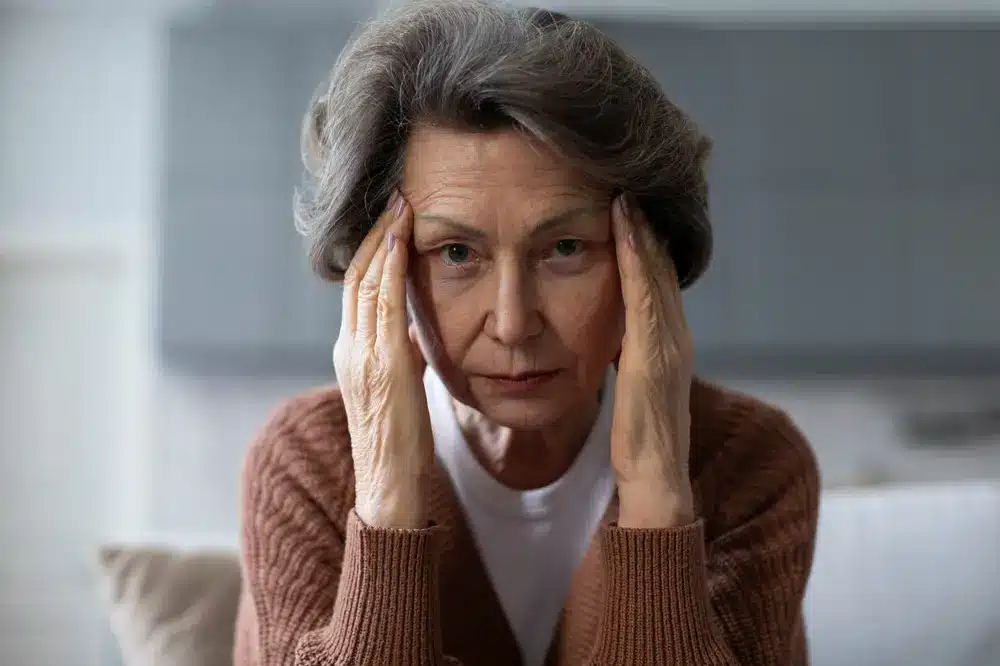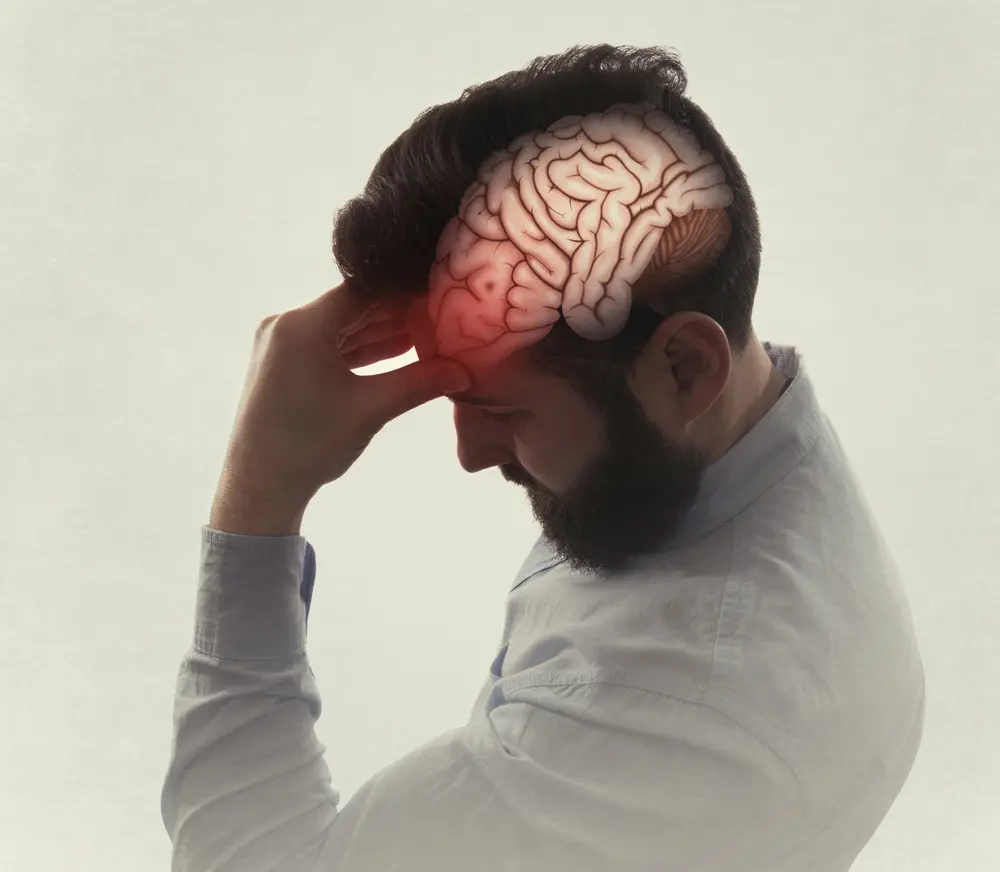For some adults, getting older can be challenging. Aging and memory issues often go hand in hand, but mental health disorders, such as anxiety and depression, can have a surprising effect on cognitive functioning as well.
What is the connection between depression and the brain? The neurologists from Neurodiagnostics Medical P.C. explain what you should know about mental health conditions and their effects on the brain below.
The Prevalence of Mental Health Disorders in Aging Adults

Mental health disorders are common among the elderly population. Research in the Annals of General Psychiatry suggests that the expected prevalence of depression among older adults is about 31.74%.
According to the National Council on Aging, up to 5% of senior adults living in the general community and about 13.5% of older adults who require home health care suffer from major depression. The American Association for Geriatric Psychology reports that between 10% and 20% of the older population has anxiety.
Common symptoms of depression and anxiety include:
- মেমরি সমস্যা
- Appetite changes
- Confusion or brain fog
- Persistent emptiness, sadness, or feelings of guilt
- Physical symptoms, like headaches and muscle tension
- Problems concentrating or making decisions
- Irritability or agitation
How Do Anxiety and Depression Affect the Brain?
The connection between depression and the brain can be visible. For instance, people with depression may have a decrease in the size of specific regions within the brain. The condition can also affect the following parts of the brain:
- The hippocampus, which supports learning, perception of space, and memory
- Prefrontal cortices, which regulate cognitive functions like emotional reactions, attention, and impulse control
- The thalamus, which relays information from the brain’s outer layer to the brain stem
- The amygdala, which controls emotion and memory
Aside from shrinkage, brain inflammation could be a risk if you have a mental health condition. The more severe or chronic the depressive moments are, the worse the inflammation could be. For instance, the risk of significant brain inflammation is higher for those with a persistent depressive disorder than for those with seasonal depression.
Depression could also cause the neurotransmitters that communicate between other cells in your body and neurons to change as well. It’s possible that an imbalance of certain neurotransmitters may occur during a depressive episode. According to research from 2018, people with depression and anxiety experience a lack of transmitters like dopamine, serotonin, and norepinephrine.
How Depression Contributes to Expedited Brain Aging
The link between depression and the brain goes beyond imbalanced neurotransmitters and inflammation. A recent study in Psychological Medicine reports that the brains of individuals with major depressive disorder seem older than their actual age. Aging is a natural process, but this evidence now suggests that depression could worsen or expedite brain aging.
The study examined the biological factors associated with brain aging, employing advanced imaging techniques to assess brain thickness. The researchers then used machine learning to analyze each image and determine the brain’s age based on the extent of its structural changes.
The images showed that people with major depressive disorder had brains that appeared significantly older than those of healthy peers. The primary issue was cortical thinning, which mainly affected the premotor eye field and left ventral region. These parts of the brain are mostly associated with essential cognitive functions, including inhibition, working memory, and attention.
Do Depression and Anxiety Cause Premature Brain Aging or Are Mental Health Conditions a Symptom?
Much of the evidence connecting depression and the brain suggests that poor mental health is a risk factor for accelerated brain aging. However, the opposite may also be true. Aging could increase the risk of mental health disorders, such as depression and anxiety.
White matter hyperintensities have a link to aging and the risk of depression. Recently, these hyperintensities, along with low-grade systemic inflammation and mitochondrial dysfunction, have been connected to the measurements of biological aging.
A hypothesis regarding the molecular brain changes at the roots of biological aging indicates that there is a direct effect on psychological processes that contribute to anxiety and depression. Another hypothesis suggests that the physiological changes from aging could trigger depression or anxiety.
Are Brain Changes Permanent?
It may be possible to reverse the changes to the brain that occur due to depression. An article in Neural Plasticity mentions how antidepressants help repair structural and molecular changes in the dendritic spines of the amygdala, hippocampus, and prefrontal cortex.
Get Help From the Best Neurologist in NYC

When it comes to depression and the brain, it’s important to get the help you need as quickly as possible. If you need help recovering from anxiety or depression that’s occurring due to a head injury or underlying neurological disorder, turn to Neurodiagnostics Medical P.C. We provide comprehensive neurology-based services using personalized treatment plans.
Our doctors accept most insurance plans, including workers’ compensation, no-fault, and PIP (personal injury protection). Same-day appointments may be available. To confirm your specific plan is accepted, please call our office or email us to verify your coverage before scheduling your appointment.
Contact Neurodiagnostics Medical P.C. today at (347) 602-9530 to schedule an appointment with a neurologist in NYC.
প্রায়শই জিজ্ঞাসিত প্রশ্নাবলী
Learn more details about depression and the brain with our answers to common patient questions.
What Part of the Brain Controls Anxiety and Depression?
There isn’t one specific part of the brain that controls anxiety and depression. Control of these mental health disorders stems from the brain’s limbic system and connections to the prefrontal cortex.
What Can Poor Cognitive Function Look Like in Someone With Depression or Anxiety?
If you have depression or anxiety, you may experience reduced cognitive functioning. This may include being easily distracted, having difficulty concentrating on tasks, and struggling to recall recent events.
Can Mental Health Disorders Change My Brain Structure?
Yes, mental health conditions can alter the structure and function of your brain. The changes can apply to the gray matter surrounding the brain or its neural circuits.
What Physical Changes Can Depression Have on the Brain?
Depression and the brain are physically linked, potentially causing reduced activity in the hippocampus and prefrontal cortex, an imbalance of neurotransmitters, and more.


